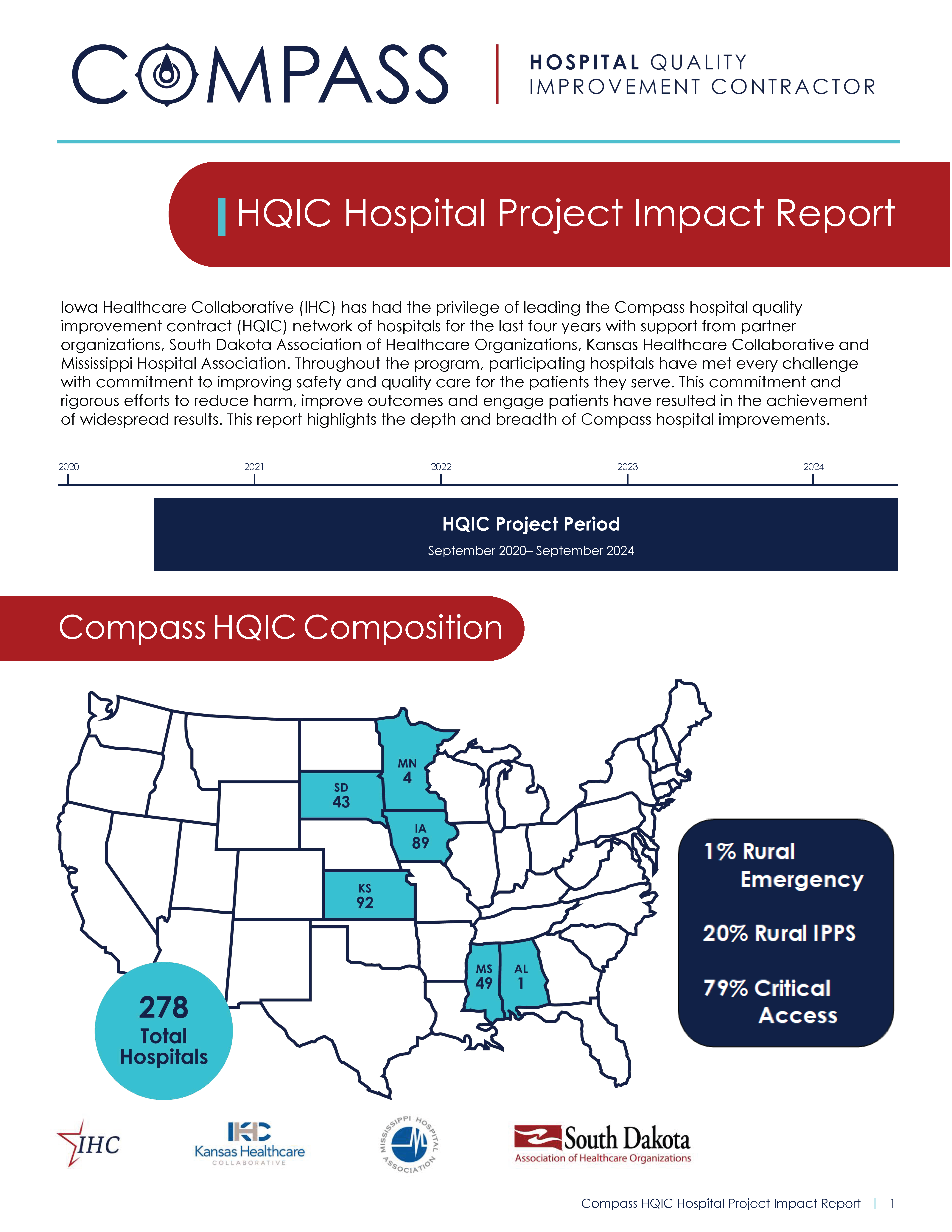
Iowa Healthcare Collaborative (IHC) had the privilege of leading the Compass hospital quality improvement contract (HQIC) network of hospitals from September 2020 to September 2024, with support from partner organizations, South Dakota Association of Healthcare Organizations, Kansas Healthcare Collaborative and Mississippi Hospital Association. Throughout the program, participating hospitals have met every challenge with commitment to improving safety and quality care for the patients they serve. This commitment and rigorous efforts to reduce harm, improve outcomes and engage patients have resulted in the achievement
of widespread results. The report below highlights the depth and breadth of Compass hospital improvements.
|
HQIC Program Impact*
|
||
| Highlighted Measures | Percent Improvement | |
| MRSA Rate | 52.13% | |
| Hypoglycemic ADE Rate | 50.82% | |
| Sepsis Mortality | 41.97% | |
| C. diff Infection Rate | 33.77% | |
| CAUTI Rate - ICU | 33.58% | |
| Opioid-related ADE Rate | 28.65% | |
| ADEs Originating During Hospital Stay | 25.42% | |
| High-Dose Opioid Prescribing Upon Discharge | 20.93% | |
| Fall Rate w Injury | 20.87% | |
| CLABSI Rate - All Units | 17.69% | |
| Hospital-wide, All Cause, Unplanned 30-Day Readmissions | 5.11% | |
| * Preliminary data as of March 2024 |
HQIC supported rural and critical access hospitals, as well as those hospitals serving vulnerable populations. KHC and KHA were pleased to partner with the Iowa Healthcare Collaborative as part of the Compass HQIC Network, which served hospitals in Kansas, Iowa, Mississippi, and South Dakota. As part of the Compass Network, KHC and its partners provided enrolled hospitals valued services, technical assistance, data, and intervention support as part of this initiative.
Since 2012, KHC has successfully led previous cycles of CMS hospital-based initiatives statewide—namely the Hospital Engagement Network (1.0 and 2.0) and the Hospital Improvement Innovation Network (HIIN).
HQIC focuses on three of the four CMS aims, which are aligned with the CMS Rural Health Strategy:
Aim 1: Improve Behavioral Health Outcomes, with a focus on decreased opioid misuse;
Aim 2: Increase patient safety with a focus on reduction of harm, and
Aim 4: Increase the quality of care transitions with a focus on high utilizers in an effort to improve overall utilization.
Note: Goal 3 is directly addressed in the QIN-QIO and clinician-based initiatives to improve chronic disease management and prevention (cardiac, vascular health, diabetes, and kidney disease.)
For more information, contact Mandy Johnson, KHC Program Senior Director, Programs:

